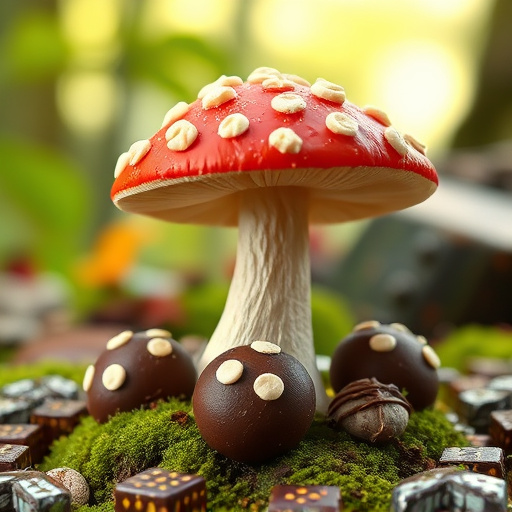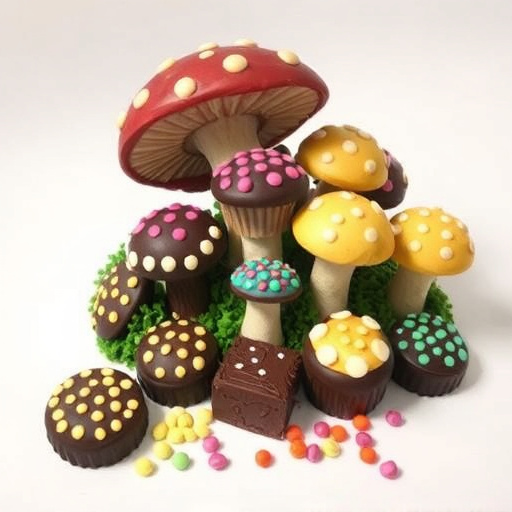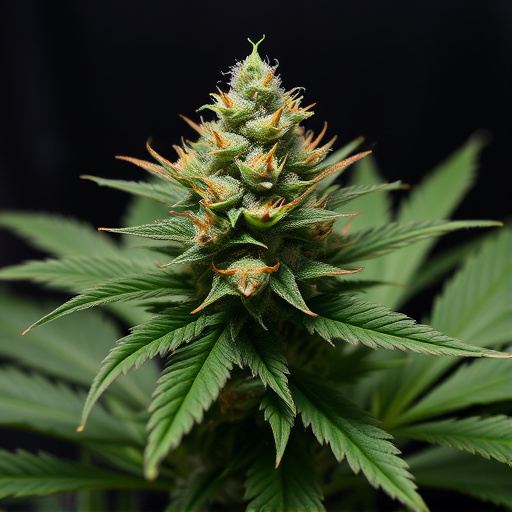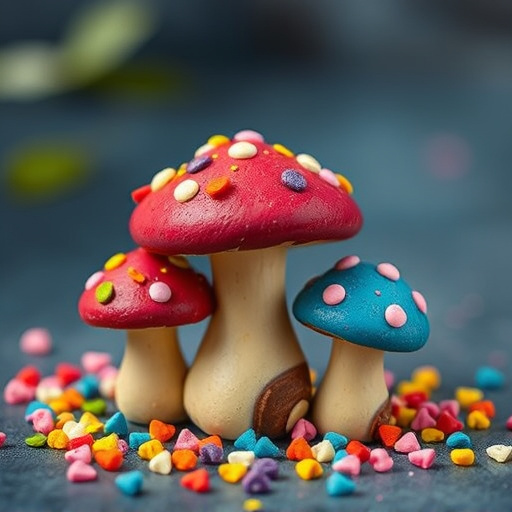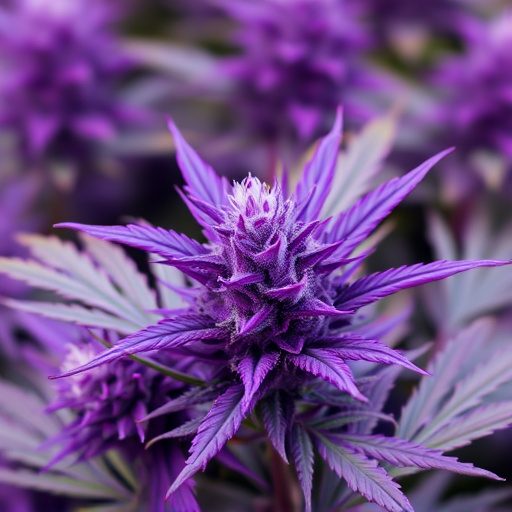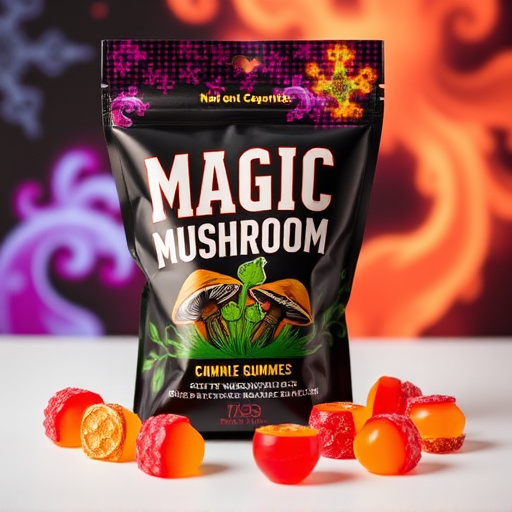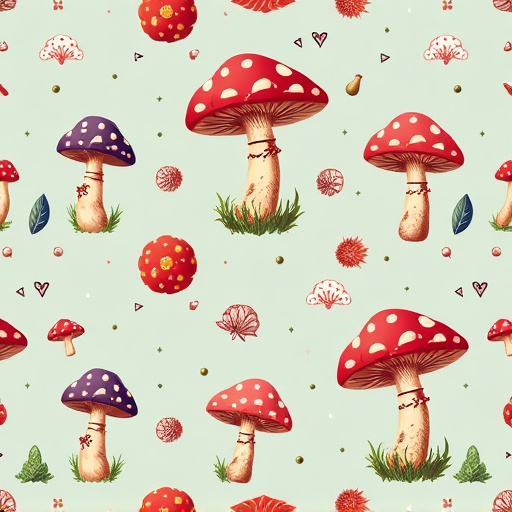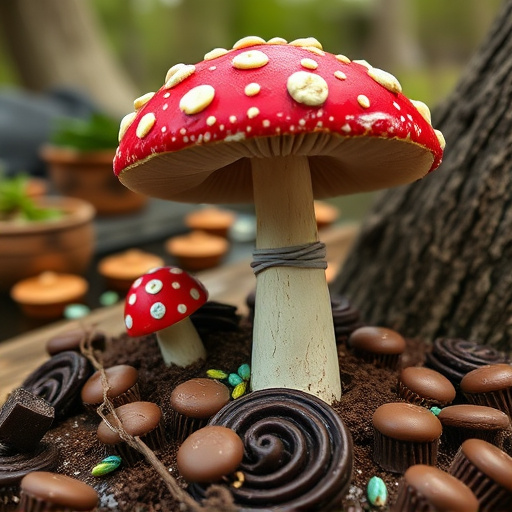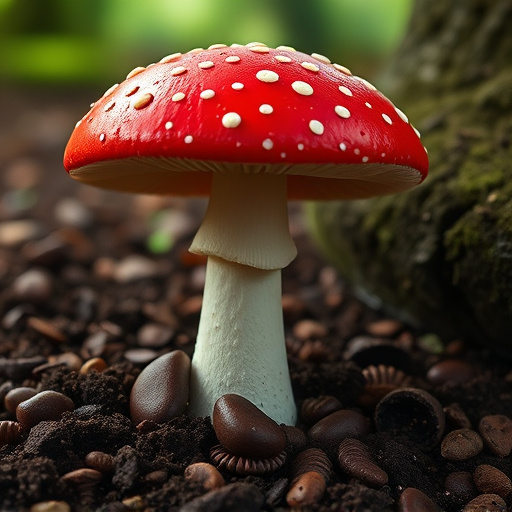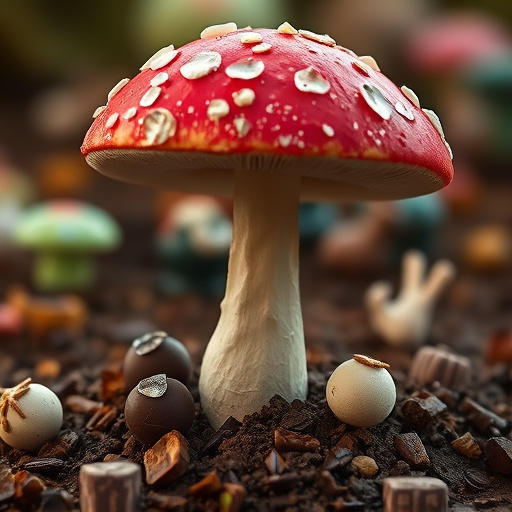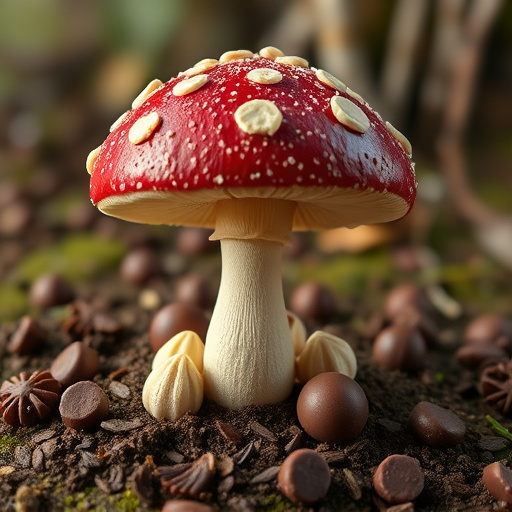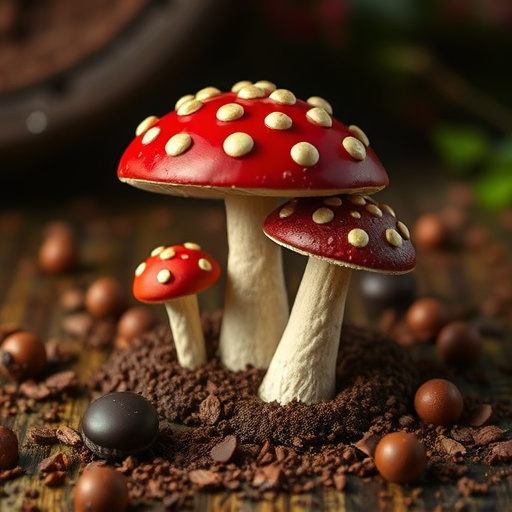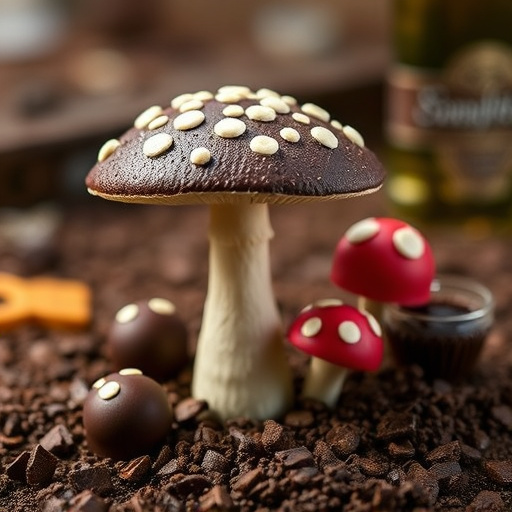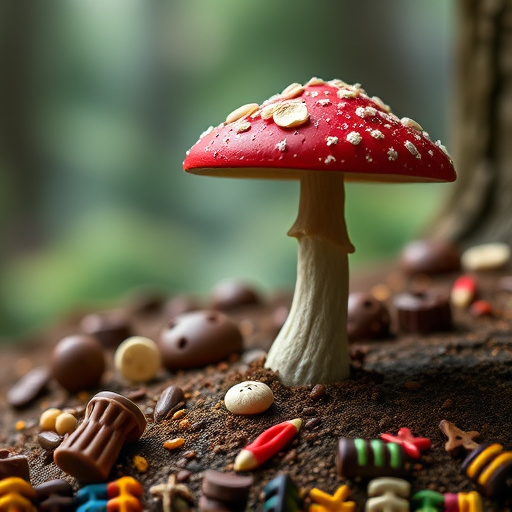Magic Mushroom Chocolates combine traditional chocolate with psilocybin, a compound found in magic mushrooms that boosts dopamine levels, enhancing mood and cognitive functions. Though offering potential for personal growth and creativity through serene experiences, these chocolates carry significant risks, including adverse reactions and unpredictable effects, especially when considering individual factors and medication interactions. Therefore, their use requires professional guidance due to the impact on brain chemistry, particularly regarding dopamine levels.
“Magic mushroom chocolates are an intriguing fusion of psychodelic cuisine, combining the essence of magic mushrooms with delectable treats. These chocolates, imbued with psilocybin, a compound known for its psychedelic effects, offer more than just a sensory experience. In this article, we explore what these chocolates entail, how they interact with dopamine levels in the brain, and delve into the benefits and risks associated with their consumption. Understand the impact of magic mushroom chocolates on your mind and body before indulging.”
- What Are Magic Mushroom Chocolates?
- How Do Magic Mushrooms Affect Dopamine Levels?
- Benefits and Risks of Consuming Magic Mushroom Chocolates
What Are Magic Mushroom Chocolates?
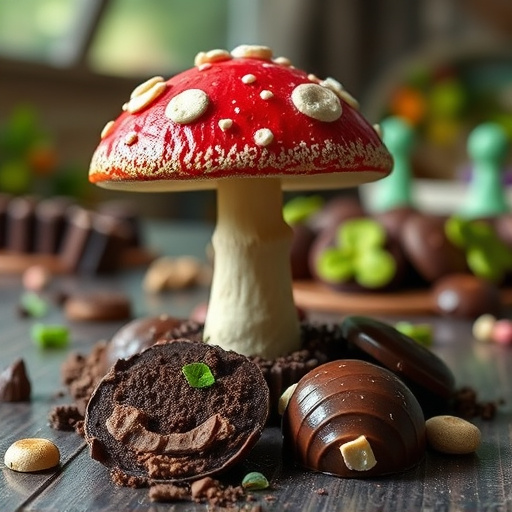
Magic Mushroom Chocolates are a unique confectionery experience that infuses the traditional chocolate treat with psilocybin, the active compound found in magic mushrooms. This innovative blend offers more than just a sweet indulgence; it aims to enhance mood and cognitive functions by interacting with dopamine levels in the brain. Dopamine is a neurotransmitter associated with pleasure, reward, and motivation, making Magic Mushroom Chocolates an intriguing option for those seeking a natural boost in these areas.
These chocolates are designed to provide a subtle yet potentially profound effect, allowing users to enjoy a quiet, introspective high that can foster creativity and emotional well-being. The experience is often described as serene and contemplative, offering a different kind of escape from the everyday hustle. With their ability to elevate dopamine levels, Magic Mushroom Chocolates are not just a decadent treat but a potential tool for exploring consciousness and personal growth in a controlled and safe manner.
How Do Magic Mushrooms Affect Dopamine Levels?
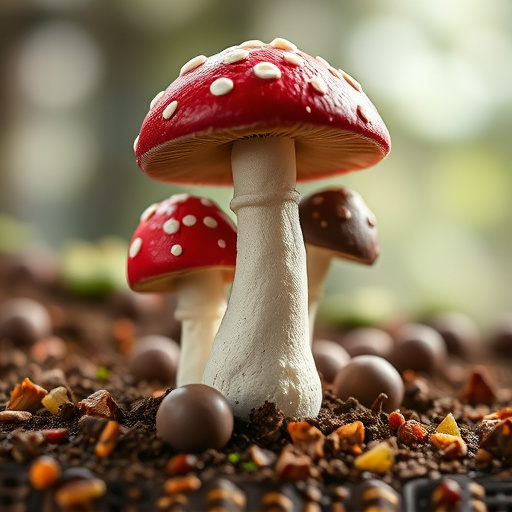
Magic mushrooms, or psilocybin mushrooms, contain compounds that interact with the brain’s neurotransmitters, leading to altered perceptions and feelings. One of the key players in this interaction is dopamine, a neurochemical associated with pleasure, reward, motivation, and cognitive function. When consumed, the active compounds in magic mushrooms block the reuptake of dopamine, resulting in an increase in its availability in the brain. This surge in dopamine levels can enhance mood, induce euphoria, and create a profound sense of well-being.
The effects on dopamine levels contribute to the overall experience of consuming magic mushroom chocolates. This increased dopamine activity is believed to play a role in the therapeutic potential of psilocybin, with some studies suggesting it could aid in treating depression, anxiety, and substance use disorders by promoting positive emotions and changing perspectives. However, it’s important to approach these substances with caution and under professional guidance due to their potent effects on brain chemistry.
Benefits and Risks of Consuming Magic Mushroom Chocolates
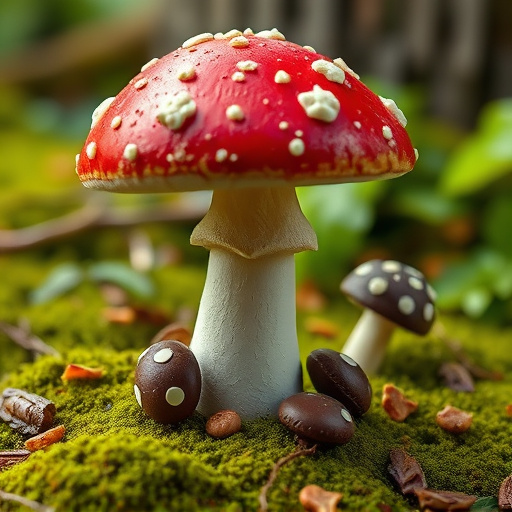
Magic mushroom chocolates, a novel fusion of culinary delight and psychedelic substance, offer a unique experience for those seeking to explore altered states of consciousness. These chocolates are infused with psilocybin, the active compound found in magic mushrooms, presented in a palatable chocolate form. While they provide an accessible way to enjoy the potential benefits associated with psilocybin, it’s crucial to consider both advantages and risks.
On the positive side, magic mushroom chocolates may contribute to heightened sensory perception, increased creativity, and profound emotional experiences. Some users report enhanced feelings of euphoria and connection to nature. Moreover, studies suggest that psilocybin can stimulate the release of neurotransmitters like dopamine, which plays a significant role in pleasure and reward systems within the brain. This could lead to improved mood, reduced anxiety, and enhanced overall well-being. However, risks exist, including potential adverse reactions such as nausea, dizziness, and feelings of anxiety or paranoia. The effects can be unpredictable, varying based on individual tolerance and dosage. Additionally, consuming magic mushroom chocolates may interact with certain medications or underlying mental health conditions.
Magic mushroom chocolates represent a unique fusion of culinary delight and psychological exploration. By incorporating psilocybin, the active compound found in magic mushrooms, into chocolate, these treats offer a novel way to potentially enhance mood and dopamine levels. However, it’s crucial to approach them with caution, considering both the benefits and risks associated with consumption. Understanding how psilocybin interacts with dopamine levels can provide insights into its potential therapeutic applications, but further research is needed to fully comprehend its effects on the body and mind.
